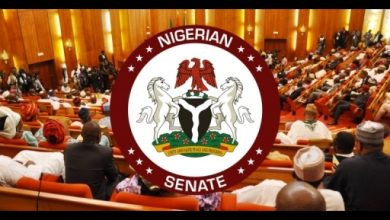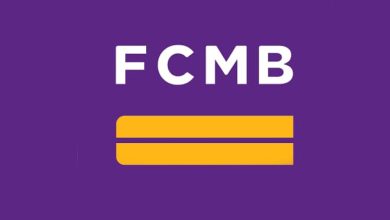Petrol Subsidy To End In 2023- CBN

Governor of the Central Bank of Nigeria Governor, CBN, Godwin Emefiele, has confirmed that Nigeria’s petrol subsidy regime will be exited by next.
He said this will be made possible with coming on stream of Dangote refinery project.
The Governor also rejected floating the naira to avoid an exchange rate spiral.
Emefiele, said this on Thursday in response to the comment on Nigeria’s foreign exchange policy made by the World Bank President, David Malpass.
Malpass had on Wednesday criticised Nigeria’s ‘ineffective’ multiple exchange rate system adding that the bank should float the naira which is trading at N416 against the dollar.
“It (CBN) runs a multiple exchange rate system which is complicated and is not as effective as it would be if there were a single exchange rate,” Malpass said at the 2022 Spring Meetings Opening Press Conference.
“The most useful thing for development is to have a single exchange rate that’s market-based, that is stable over long periods of time. That attracts investment and it also means that there is discipline within the country’s fiscal policies. That would help,” he added.
Nigeria has the Investors and Exporters (I&E) window which was activated in 2017, where FX sourced from autonomous sources are traded between Authorised Dealers, Clients and the CBN.
Another window, the Bureau De Change (BDC) Market, which has become crucial in meeting FX demands, the naira currently trades at N580/dollar in that segment of the market.
Emefiele said that the policy of the government is to ensure a managed float of the Naira as opposed the proposal of the World Bank for the currency to freely float.
A free floating exchange rate is a flexible exchange rate system solely determined by market forces of demand and supply of foreign and domestic currency, and where government intervention is totally inexistent.
On the other hand, a managed floating exchange rate is an exchange rate regime in which the exchange rate is neither entirely free (or floating) nor fixed.
Rather, the value of the currency is kept in a range against another currency by central bank intervention
Emefiele said, “Even at our private meetings, what we come up with is to say look, we realise that different countries have different challenges, what we do expect is for you to go back and develop a home grown solution that helps your situation.
“Let me say that Nigeria is on a managed float. What that also means is that we cannot adopt what is being proposed that we go on a free float of the currency. Doing that will create an exchange rate spiral for Nigeria as long as the demand surpasses the supply of foreign exchange in Nigeria.
“We have been at this since 1986 and that is why we are saying whereas we are doing something to adjust the currency, like for instance between 2015 and now, you will observe that we have adjusted the currency from about N155/USD to about N410, N420 that it is today.
“So, we cannot be accused of not adjusting the currency. But we are trying to adopt a very gradual approach towards adjusting the price to the level that it is today.
“But at the same time, we have to be given the chance to also look at while you are adjusting the price, you must also do something about demand and supply.”
Emefiele noted that the bank is more concerned in fixing the supply shortage, which would help reduce pressure on naira when achieved.
According to him, Dangote Refinery will help reduce the foreign exchange spent on the importation of petroleum products.
He said, “And that is the reason we are saying we need to do something on demand to make sure that those things we can produce in the country, we restrict access to foreign exchange so that it will encourage people to produce locally.
“When that happens, what it means is that the demand for foreign exchange will reduce and when demand of foreign exchange reduces, fortunately you will find that the price will be better and will not rise beyond the expectation of Nigerians.
“With Dangote refinery coming up with the 650,000 barrel refinery, hopefully by around the end of the year, that will also hopefully reduce the demand for foreign exchange that normally will go for the importation of petroleum products.
“I have often said, between the importation of refined products alone into importation of rice or sugar or wheat, this consumes close to about 40 per cent of foreign exchange that is needed to fund import in Nigeria.
“If we find for instance a situation where by the end of this year we are no longer going to be needing foreign exchange to import petroleum products, I believe that demand will drop. As demand drops, what you will find is that whatever supply is able to match demand, we can see a stable exchange rate.
“By the time we achieve this, we will continue to engage with the World Bank and the IMF. And we will say that they are doing their best. “
On the issue of subsidy, the CBN governor defended the postponement of the removal of the subsidy till when the country is prepared.
According to him, the subsidy will be removed by next year when the Dangote Refinery is fully operational.
Emefiele said, “On this issue of subsidy, when you find people talking about removal of subsidy, I support. Also when you talk about holding onto the subsidy until the right time, I do support that.
“We decided to defer the policy of removal of subsidy until sometime next year when we are sure that the Dangote Refinery has fully taken off. What does that mean? That at least, we need to make it easy for people to refine petroleum products and pay in Naira.
“Dangote himself is going to procure the crude out of the 455,000 barrels per day in naira and so, we save the cost of both transportation and logistics. Effectively if we wait till that time, we will be able to achieve the same result but we have to be a little bit patient.”





